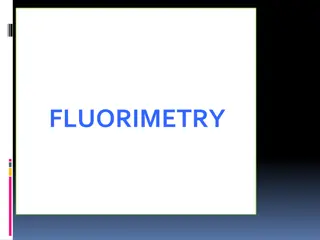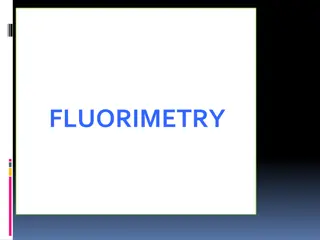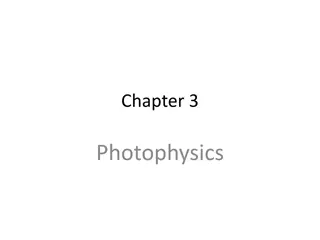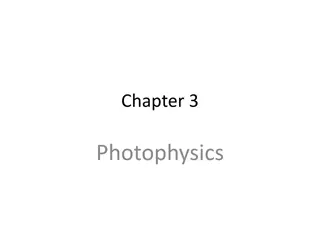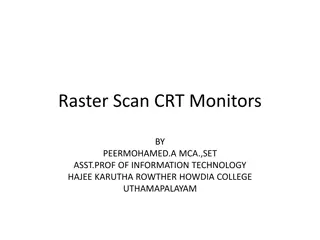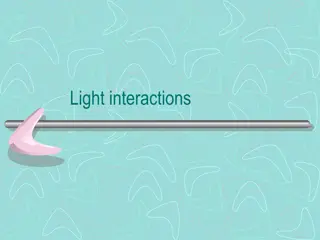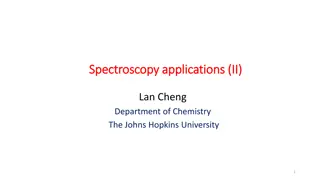Understanding Fluorimetry: Principles and Applications
Fluorimetry is the measurement of fluorescence intensity at a specific wavelength using instruments like filter fluorimeters. It involves the excitation of molecules by radiation, causing electron promotion and emission of radiation. This process includes states like singlet and triplet, with relaxa
3 views • 45 slides
Understanding Fluorimetry: Principles, Applications, and Instrumentation
Fluorimetry is a technique that measures fluorescence intensity of molecules when excited by radiation. It involves the promotion of electrons from ground to excited states, leading to emission of radiation. This process includes singlet and triplet states, as well as relaxation mechanisms like Coll
0 views • 45 slides
Exploring the Fascinating World of Photophysics and Luminescence
Dive into the intriguing realm of photophysics, where various emission and loss processes lead to luminescence phenomena such as fluorescence, phosphorescence, and chemiluminescence. Discover the beauty of bioluminescence in nature, from fireflies to bioluminescent red tide events. Explore the mecha
0 views • 16 slides
Understanding Photophysics: Emission and Luminescence Processes
Photophysics explores the emission and loss processes in luminescent phenomena, named based on the excitation mode of energy-rich species. Different types of luminescence include fluorescence, phosphorescence, and chemiluminescence. Bioluminescence in nature, such as in fireflies and dinoflagellates
0 views • 20 slides
Understanding Raster Scan CRT Monitors in Information Technology
Raster Scan CRT Monitors are a common graphical output device used in Information Technology. They consist of components like the electron gun, control electrodes, and phosphor-coated screen. The electron beam emitted uses electromagnetic fields to direct and focus on specific spots on the screen. T
0 views • 11 slides
Understanding Light Interactions: Reflection, Absorption, and Fluorescence
Explore the fascinating world of light interactions, where light can be reflected, absorbed, or transmitted based on the nature of the object it encounters. Learn about absorption in different materials, fluorescence, phosphorescence, and the concepts of specular and diffuse reflection.
0 views • 17 slides
Applications of Spectroscopy in Lifetimes and States Excitation
In this collection of images sourced from Johns Hopkins University's Department of Chemistry, various aspects of spectroscopy applications in determining lifetimes for electronic and vibrational excited states are highlighted. Topics covered include transition energies, dipole moments, and decay rat
0 views • 18 slides
